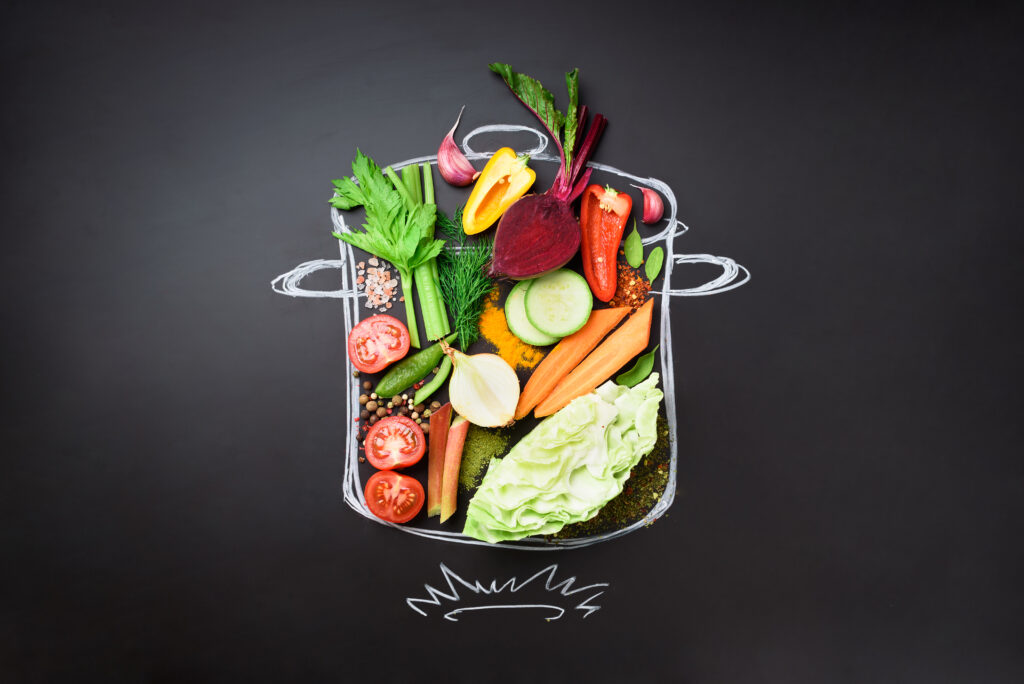Nutrition Principles for Surgery and Chemotherapy: A Complete Guide for Cancer Patients
A high-protein, anti-inflammatory diet and nutritional supplements help cancer patients maintain immunity, reduce side effects, and improve treatment success rates.
Free cancer support
Studies show that more than 80% of cancer patients develop malnutrition during treatment, and nearly 40% experience reduced treatment effectiveness due to poor nutrition (ESPEN, 2021; American Cancer Society, 2023). Proper nutritional support can:
- Prevent excessive weight loss
- Support recovery after surgery, chemotherapy, and radiotherapy
- Maintain immune function
- Reduce side effects and inflammation
- Improve quality of life and treatment success
Why Is Nutrition So Important?

Core Nutrition Principles for Cancer Patients
Increase Calories and Protein
During treatment, daily caloric needs are 30–35 kcal/kg, with protein requirements of 1.2–1.5 g/kg (ESPEN, 2021).
- Example: A 60 kg patient needs about 1,800–2,100 kcal and 72–90 g protein daily.
Reduce Red Meat and the “Three Whites” (white rice, white flour, white sugar)
- Red meat contains saturated fats that increase inflammation.
- Refined starches raise insulin and IGF-1, which may stimulate tumor growth (Hopkins Medicine, 2023).
Choose an Anti-Inflammatory Diet
Adopt a Mediterranean-style diet: colorful fruits and vegetables, plant proteins (beans, legumes), fish, seafood, chicken breast, nuts, olive oil, and whole grains (Demark-Wahnefried & Thomson, 2025; Mukai et al., 2021).
Use Nutrition Supplements Wisely
- Oncology-specific nutrition formulas: Containing arginine, fish oil, nucleotides, and glutamine to reduce cachexia, boost immune function, and help white blood cell recovery (Hu et al., 2022).
- Vitamins and anti-inflammatory supplements: B-complex vitamins, vitamin D3, vitamin C, curcumin, and fish oil help reduce treatment side effects (Mukai et al., 2021).
- β-Glucans (e.g., Coriolus, yeast polysaccharides): Clinical trials show they can support immune recovery and white blood cell levels (Lee et al., 2021; Ikewaki et al., 2021).
Practical Daily Diet Guidelines
Healthy Plate Model:
- 7–9 servings vegetables & fruits daily
- 1 bowl of whole grains (brown rice, quinoa, oats)
- Protein with every meal: palm-sized portion of fish, seafood, chicken, or tofu
- Extra healthy fats from nuts, olive oil, or flaxseed oil
Supplement Strategy:
- Use oncology-specific nutrition drinks for 5 days before and after chemotherapy to reduce side effects and support white blood cells (Schmidt & Oberritter, 2024).
- Eat Small, Frequent Meals: 4–6 times per day to maintain nutrition despite treatment-related side effects.
Managing Common Side Effects with Diet
- Nausea and Vomiting → Eat small meals, avoid greasy or overly sweet foods, choose dry or sour foods; avoid eating right before treatment.
- Diarrhea → Reduce high-fiber foods, stay hydrated, replenish potassium, avoid dairy.
- Constipation → Increase fruits, vegetables, whole grains, water, and light exercise.
- Dry Mouth → Choose semi-liquid meals, sip water often, avoid spicy foods and alcohol.
- Low White Blood Cells → Avoid raw or undercooked foods, drink only boiled/filtered water, ensure strict food safety (Verywell Health, 2023a).
- Poor Appetite → Eat small, nutrient-dense meals, and create a pleasant mealtime environment.
Plant-Based Dietary Adjustments
International studies show that adopting a mostly plant-based diet with fish and eggs after cancer diagnosis can reduce recurrence and mortality risk by 19–24% (Demark-Wahnefried & Thomson, 2025).
- Eat a wide variety of colorful fruits and vegetables, beans, nuts, and whole grains.
- Prioritize protein from fish, seafood, beans, and chicken.
- Use whey protein supplements if needed, but avoid excess casein from cow’s milk.
Conclusion
Cancer treatment is a race against time. Beyond surgery and chemotherapy, nutrition and exercise are critical for recovery. By increasing protein and calories, following an anti-inflammatory diet, and using targeted nutrition supplements, patients can:
- Maintain immune function
- Reduce treatment side effects
- Improve strength and quality of life
- Enhance treatment success rates

